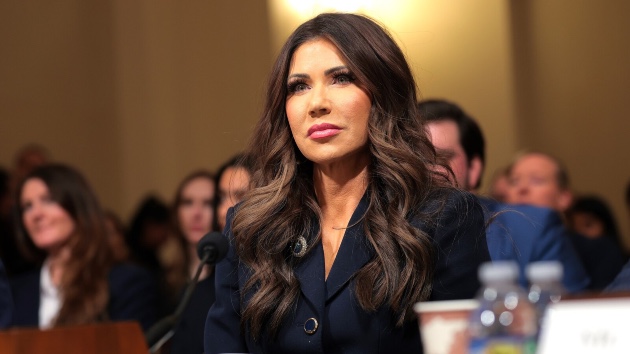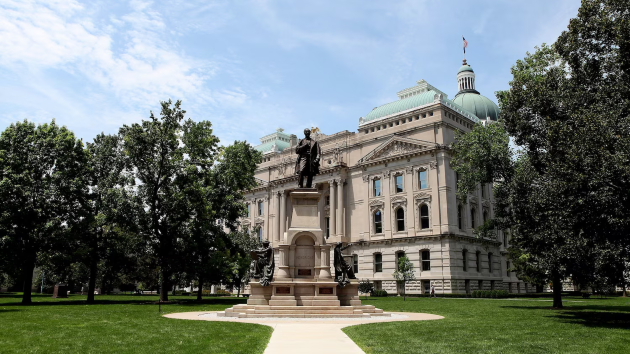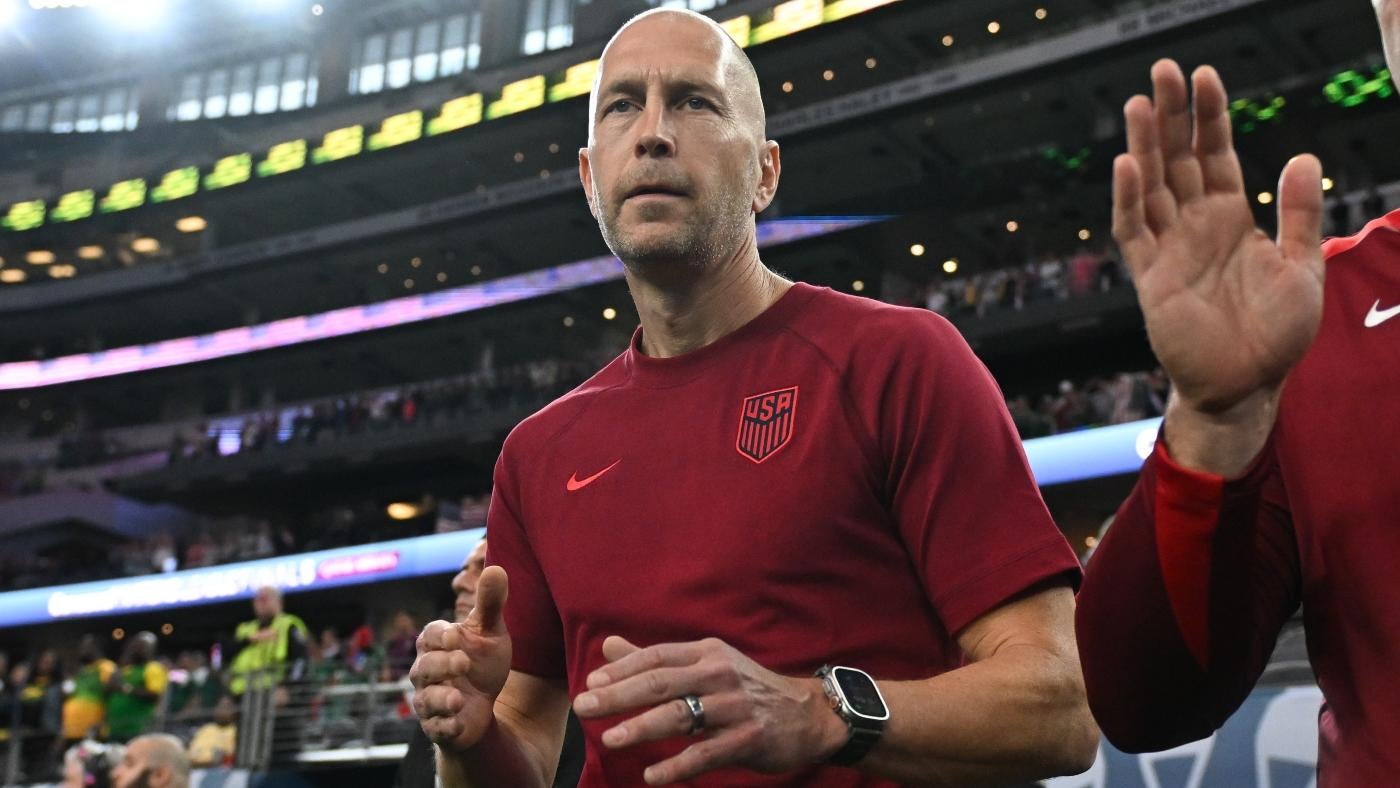After Trump’s endorsement in big primary win, Republicans mull how to handle him in key Senate races
Written by ABC Audio All Rights Reserved on March 24, 2024

(WASHINGTON) — Some Republicans say they are weighing how closely candidates in key Senate races should embrace former President Donald Trump after his preferred candidate romped in this week’s Ohio GOP Senate primary.
The GOP is on offense in red states like Montana and Ohio and purple states like Arizona, Michigan, Nevada, Pennsylvania and Wisconsin as the party hopes to wrest the Senate from narrow Democratic control in November.
Many observers and experts have expected that Republican candidates in those races will need at least some distance from Trump, who has early polling edges but still faces dour approval ratings with the broader electorate — and who had proved unable to boost some of his marquee endorsees to victory in general election races, like Arizona in 2022.
However, conservatives now tell ABC News they are reconsidering after businessman Bernie Moreno clinched the party’s Senate nomination in Ohio — and surprised the polls — in the wake of earning Trump’s support.
And while Ohio is not as narrowly divided as other swing states hosting Senate races this year, Moreno’s roughly 18-point margin of victory in a three-way race, along with Trump’s outsized presence on the campaign trail and at the top of ballots this November, is causing some Republicans to consider the feasibility of having candidates distance themselves from their party leader.
“No, don’t run away from it at all,” said one GOP strategist with extensive experience working in Nevada, host of one of the nation’s major Senate races later this year.
“Of those states, [Trump] right now is polling favorite, a tossup at least,” said this strategist, who asked not to be quoted by name to be more candid. “And also, voters don’t buy it. You’re a Republican. You’re running with the Republican. Everybody kind of gets it.”
There is another dynamic at work: Unlike in some past cycles, Republicans in Washington have worked diligently in 2024 to pave the way for noncontroversial candidates to clear Senate primary fields, offering early endorsements and additional support while boxing out other would-be contenders weighed down by ideological and personal baggage.
The strategy marks a departure from the national party’s more laissez-faire approach in 2022 when divisive and scandalized candidates were able to clinch the GOP nomination and then lose competitive Senate races like those in Georgia and Pennsylvania. And so far, it’s worked — the party’s preferred candidates are either running all by themselves or against resource-starved opponents in Montana, West Virginia, Wisconsin and more.
This year’s crop of candidates, though, will have to navigate running in a presidential year when the quadrennial debate over how tightly to embrace the top of the ticket is ramped up for both parties.
Republicans, including those around Moreno, eye his bear hug of Trump and subsequent victory — and see some evidence that distance from the top of the ticket won’t necessarily punch candidates’ way to the Senate.
“Bernie won because he had Donald Trump backing him and because Bernie reflected Donald Trump’s ‘America First’ worldview, which is the dominant worldview in the Republican Party in 2024,” said one Moreno adviser.
“The party of George Bush is dead and buried. As much as that pains some establishment Republicans to hear, it’s just the reality. Running in the so-called establishment Bush lane in Republican primaries is a death spot,” this person said.
Party operatives cautioned, still, that that proximity to Trump isn’t equally popular everywhere and doesn’t replace the need for a candidate to establish their own brand, a necessity in politics generally but also in a cycle when handfuls of split-ticket voters could make an outsized impact in November.
But on the flip side, establishing a brand too removed from Trump may not be possible either.
“Every candidate, they’re gonna run their own campaign. And that’s always been the case,” said GOP strategist Zack Roday. “These candidates have to make a determination on what they’re doing each day and every day, but they will be barnstorming these states, I’m sure the president will be barnstorming these states. I’m sure you’ll see them together. And I’m sure that the campaigns will make a determination on what their emphasis is as we go into the really heavy spend period.”
Many Republicans have already made the calculation that tying their ship to Trump’s is the best way to sail to the Senate.
Moreno got a boost of attention among party voters by a late rally with Trump in Dayton, Ohio, days before primary voting. Kari Lake, the overwhelming favorite to win Arizona’s GOP Senate primary, is such a close ally that her name was tossed around in the Trump “veepstakes.”
And Tim Sheehy, who is virtually guaranteed to run against Montana Sen. Jon Tester, a Democrat, is touting his endorsement from the former president on the trail and running a banner about it at the top of his campaign website.
Other Republican strategists, though, warn such proximity poses risks.
Presidential primary results have shown Trump struggling to win back voters in the suburbs and among more moderate and independent-leaning blocs — the same sore spots where President Joe Biden was able to run up the score in the 2020 general election, exit polling found.
“In a purple state, you do need to have some distance from Trump, because odds are you’re going to have to out-poll Trump, and you want Trump to be your floor but not to be your ceiling,” Chris Nicholas, a veteran Pennsylvania Republican consultant, told ABC News, adding that he “would not put Ohio into the category of purple-y states.”
Other candidates have not distanced themselves from Trump as much as they’ve focused more on their own race.
Dave McCormick, Republicans’ preferred candidate in Pennsylvania’s Senate battle, has endorsed Trump’s campaign but focused much of his campaign on knocking Biden and Democratic incumbent Bob Casey while promoting his military service, ties to the state and support for farmers, for example.
To be certain, Democrats are expected to have to walk a tightrope of their own given Biden’s grim approval ratings, and drawing eyeballs to down-ballot races with such outsized personalities at the top of the ticket this year could be a struggle for both parties.
And for all the focus on swing voters, Trump helps supercharge the Republican base, making an alliance potentially beneficial for down-ballot candidates, as evidenced in Ohio, where Moreno posted strong showings in key blue-collar counties — precisely the kind of areas Democratic Sen. Sherrod Brown, his November opponent, has historically leaned on.
“Donald Trump is more popular than virtually every Republican Senate candidate,” Moreno’s adviser said. “So Republicans push him away at their own peril.”
Copyright © 2024, ABC Audio. All rights reserved.

 KVSP
KVSP 





